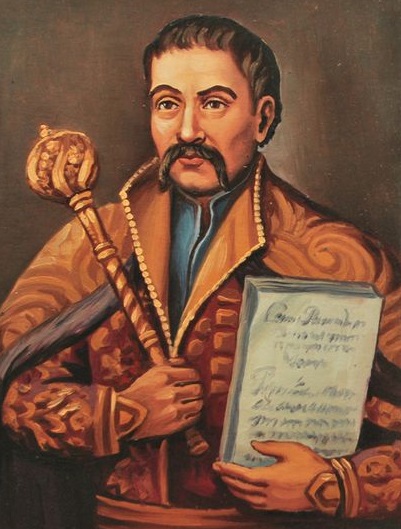On April 16, 1710, Pylyp Orlik created the “Pacts and Constitutions of the Rights and Liberties of the Zaporozhian Army” – an agreement with the foreman and the army of the Cossacks. This document became known as the Pylyp Orlyk Constitution, the first Ukrainian and one of the first European constitutions. On the occasion of 314 years since the creation of this significant agreement, WomanEL tells 5 interesting historical facts.
Content< i class="rbi rbi-angle-down">Anti-corruption paragraphsThe first model of a parliamentary democratic republic in EuropeRevisions of the Constitution by Pylyp OrlykCapital and three names of UkraineExhibition in St. Sophia Cathedral
The Constitution limited the privileges of the hetman and foreman, equalized the rights of the Cossacks, while maintaining the separate status of the Cossacks. In addition, it assumed the political independence of Ukraine from Muscovy and the development of an independent Ukrainian Church.

Anti-corruption paragraphs
A number of paragraphs (6-9) were devoted to anti-corruption measures: condemnation of the usurpation of power, limitation of the hetman’s rights, elective positions, financial control mechanisms, etc. Here the division of powers into legislative, executive and judicial was approved.
The first model of a parliamentary democratic republic in Europe
The Constitution was in exile and was not implemented in full force, although it was in force for some time on the Right Bank of Ukraine. But, undoubtedly, it became an outstanding monument of law, which for the first time in Europe substantiated the model of a parliamentary democratic republic.

Editions of the Constitution of Pylyp Orlyk
The document exists in four editions: two texts (main and abridged) in Latin, two (the original and a cursive copy of the time) in Old Ukrainian. The main and abridged texts in Latin are kept in the National Archives of Sweden. The text in Old Ukrainian was found in 2008 in the Russian State Archive of Ancient Acts.
Once upon a time, the complete Latin text was kept in his family archive by Nikolai Khanenko, who passed it on to his descendants – Mikhail Khanenko and his brothers Alexander and Ivan. Subsequently, the document came to Sweden. As for the copies in the Old Ukrainian language, they were intended for announcement in Ukraine and in the Zaporozhye Sich.
The capital and three names of Ukraine
The Constitution of Pylyp Orlyk mentions three at once names of Ukraine. The Zaporozhye Army is the official name of the Hetmanate, Ukraine is the right-bank part of the Ukrainian lands, which as of the 18th century was part of the Polish-Lithuanian Commonwealth and Little Rus' – Left Bank Ukraine.
At the same time, the thirteenth article of the Orlik Constitution decreed that Kyiv was proclaimed the capital of the state of the Zaporozhian Army. Before this, the status of the capital of the Hetmanate was held by such cities as Chihyryn, Gadyach, Baturyn, Glukhov and others.
Exhibition in the St. Sophia Cathedral
To the 30th anniversary of Independence original a copy written by the hand of Pylyp Orlyk, thanks to the efforts of our diplomats, was delivered from Sweden to Ukraine for the first time in 311 years and was exhibited in the St. Sophia Cathedral for three months.
And although the Constitution of Pylyp Orlyk never acquired real force, since it was formed in a foreign land and its compilers did not have the opportunity to return to the country. But it remained in history as an original legal monument.
Previously, we read a prayer for Ukraine, peace and quiet.

